Ten Brilliant Poets Discuss Their Writing Philosophies, Recommend Stellar Poems and Offer Tips On How Best To Handle Rejections
Poetry, lubricant
for the soul
the soul of prose
I suppose,
sparse, shut-up, scope-charged, pause-patterned
sometimes flamboyantly confusing like [dead] body language.
Poetry, unabashedly itself.
We have pitched our tents with ten sterling poets. They will tell us why they write poetry, the poets they always return to, three poets they will recommend to aspiring poets, and wise words of encouragement for poets who are navigating the treacherous River of Rejection. Let’s go!
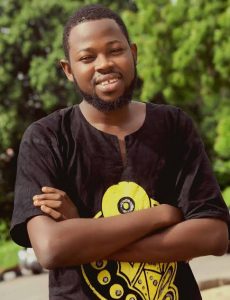 Rasaq Malik: Poetry contains a kind of magic absent in other genres. There is this sudden awareness that encapsulates me when I read a stellar poem. The language is another cogent factor that draws me to poetry. With this language, I am able to execute the task of making and remaking, constructing and deconstructing.
Rasaq Malik: Poetry contains a kind of magic absent in other genres. There is this sudden awareness that encapsulates me when I read a stellar poem. The language is another cogent factor that draws me to poetry. With this language, I am able to execute the task of making and remaking, constructing and deconstructing.
I find it hard to select my best out of the many exquisite poems I have read. Danusha Lameris’s ‘Arabic’ is a poem of endless linguistic surprises. Danusha molds lines that unearth one’s thoughts, lines that bind and unbind one’s mind to losses. Derek Walcott’s ‘Sea Canes’ is a poem of undying beauty. The beauty emerges in the form of grief. Since it is Derek, the language continues to haunt. I find myself memorizing the verses of the poem.
I would recommend Peter Akinlabi, Akeem Lasisi, and Jumoke Verissimo. Peter Akinlabi’s ‘Iconography’ is a monumental book. Apart from the poet’s engagement with history and brief recollection of personal life, diction is ingeniously deployed. Peter invents and refines language. He unwraps and clothes it. Akeem Lasisi’s ‘Night of my flight’ aids my continuous connection to the pristine African past. Its lyricism —orality presented in a grand style—is both enchanting and remarkable. Jumoke Verissimo’s ‘I am memory’ is a daring book. The poet’s thematic preoccupation continues to remain timely. As a book that explores mostly postcolonial angst and tension, the readers find ample allusions to the tragic past and present of Nigeria. The lyricism is undiluted, perfect and top-notch.
On the thing called rejection: Please, keep moving. Writing, like life, encompasses failures and successes. By studying some masters of this craft, I have come to realize that at some periods in their poetic odysseys they were hit by the tornadoes of rejections. Some of them are still rejected, despite their mouth drooling accolades. Presently, I have more than 500 rejection letters. I keep counting. But I have grown a thick skin to absorb this ‘continuous’ pour of rejection letters. Keep reading. Keep inventing and reinventing. Keep searching for yourself in every poem. You will find a door that leads to your history.
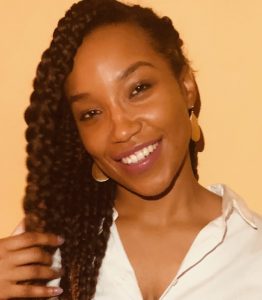 Brittney Jeffries: I write about my authentic feelings and emotions. I write about love. I write about my fears. I write about inequalities. I write about the lessons I have learned. I write about hardships. My poetry is inspired by conversations, a situation I am working through or observation of others. Poetry is the easiest form of expression for me. It helps me release my most vulnerable thoughts without any filtering or overthinking. I began writing as a teenager. I would write songs and record them, but I remember writing my first piece of poetry about a year and half ago. I was upset about something, I opened my laptop, and the words just began to pour. I didn’t have a choice. Poetry chose me.
Brittney Jeffries: I write about my authentic feelings and emotions. I write about love. I write about my fears. I write about inequalities. I write about the lessons I have learned. I write about hardships. My poetry is inspired by conversations, a situation I am working through or observation of others. Poetry is the easiest form of expression for me. It helps me release my most vulnerable thoughts without any filtering or overthinking. I began writing as a teenager. I would write songs and record them, but I remember writing my first piece of poetry about a year and half ago. I was upset about something, I opened my laptop, and the words just began to pour. I didn’t have a choice. Poetry chose me.
I return to the poems that I wrote to motivate myself. These are the poems that I recite over and over until they flick on a new light in me. I wrote a poem about self-love and I go back to that poem whenever I catch myself not operating in that space. I use some of my poems as mantras because I write what I need to hear.
I really love Maya Angelou and Nikki Giovanni. Their works make black women feel beautiful, smart, and loved and were written in a time when society said otherwise. I also love Rupi Kaur and Cleo Wade because they show how beautiful it is to create one’s path. They are setting a blueprint for other women writers and change makers.
Rejection is just a part of life. It stings for a moment but then turns into a learning experience. It builds character. Going through it is never easy, but you come out stronger. Believe in yourself and your work. No one will see your dreams and vision the way you see them so hold them close. I have been rejected by many publishers, but it just forced me to go back to the drawing board. Continue to write. Keep loving the process. Creating art should be something you do because it brings you nothing but joy.
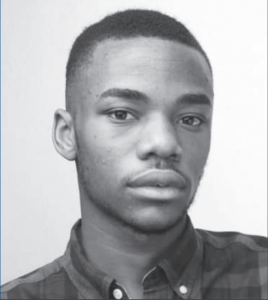 Logan February: My art comes from a place of self-expression, a political place of understanding and decoding the world that I live in, and from translating archetypal symbols. In my work, I like to be honest, to be sexy, and to be disruptive. I would like to—and I do—write in other forms, but I think of poetry as my way of making concise cognitive statements—existential arguments, if you will. I like the idea that I can present my consideration on certain subjects without the extravagance of thousands of words. Also, poetry never lets me grow too comfortable in my methods or perspectives. It remains exciting to me when everything else feels like work.
Logan February: My art comes from a place of self-expression, a political place of understanding and decoding the world that I live in, and from translating archetypal symbols. In my work, I like to be honest, to be sexy, and to be disruptive. I would like to—and I do—write in other forms, but I think of poetry as my way of making concise cognitive statements—existential arguments, if you will. I like the idea that I can present my consideration on certain subjects without the extravagance of thousands of words. Also, poetry never lets me grow too comfortable in my methods or perspectives. It remains exciting to me when everything else feels like work.
There are poems that pull me and refuse to let go, they change all the time, with regards to where I am at in life. I find myself rereading Leila Chatti’s ‘The Rules’, Natalie Diaz’s ‘From The Desire Field’; and Kaveh Akbar’s ‘The Palace’. There is also (perhaps always) Dorothea Lasky’s ‘A New Reality’ which is probably the only poem that I have memorized in its entirety.
I think I read more contemporary poets than anyone else. Three poets whose works were instrumental to my growth when I started out as a poet—and thus, whom I would recommend—are: Richard Siken, Safia Elhillo, and Ocean Vuong.
Siken, because his poems are characterized by a smooth melodrama, and his language is captivating and cinematic. He is deliciously witty and always makes one see everything in a new light. Elhillo is simply genius, stylistically unique and formally inventive, her poems are gorgeous and made accessible by the honesty of her voice. Vuong’s work is full of incredibly great images, and he combines his discipline and rigor as a poet, with an intimacy that gives one a deeper understanding of the self and its histories. These poets are unfailingly stunning, and there is so much to learn from their crafts.
To poets currently battling with rejection: No publication or prize is owed to you, so you shouldn’t take rejection personally, as that will push you towards discouragement and self-doubt. Realize that your heroes get rejections too; that greatness is determined more by persistence than anything else. Never give up, and never stop learning. Keep going.
You might also like Cozy Cat Press 2019 Poetry Contest / How To Apply (Prizes: $175) + How To Submit Your Full-length Manuscript To Them
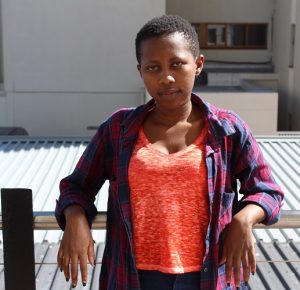 Nondwe Mpuma: I write about people, places, and the life happening around me. I write about existential crises I find myself in. Poetry is my preferred artistic expression because I articulate myself better in this medium. Poetry also forces me to push past what I know.
Nondwe Mpuma: I write about people, places, and the life happening around me. I write about existential crises I find myself in. Poetry is my preferred artistic expression because I articulate myself better in this medium. Poetry also forces me to push past what I know.
Emily Dickinson’s ‘Because I could not stop for Death’ is one of the poems I often return to. This is because of its lyrical quality and the subject matter. I often think about death and what could be on the other side.
I think that a good knowledge of what has been done with poetry is important so I would recommend some Emily Dickinson or T.S Elliot to those starting out. I would also recommend Ocean Vuong because he writes with the kind of honesty I find refreshing and relatable. The third is Koleka Putuma, a young South African poet, because she is charming the world with both traditional poetry and spoken word.
Rejection means many things and not one of these things can be defined as failure. So when that rejection letter comes through, read it and find where you need to improve.
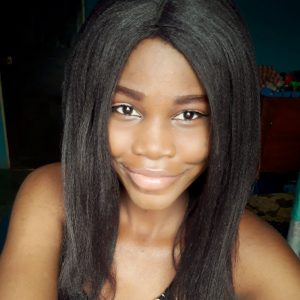 Nimisire Tobi Emitomo: I have an otherworldly relationship with poetry because it transforms words into something spiritually powerful. This is why it is the vessel I use to relay experiences. I write about everything in this realm and beyond.
Nimisire Tobi Emitomo: I have an otherworldly relationship with poetry because it transforms words into something spiritually powerful. This is why it is the vessel I use to relay experiences. I write about everything in this realm and beyond.
I return to Ijeoma Umebinyuo’s poetry collection, Questions for Ada, a lot. I relate with the poems on many levels; from being a woman, an African woman, an African woman living in an African country, to an African woman born in the 20th century by a woman who is just understanding that there is something different between her and her daughter. I also re-read Khalil Gibran’s ‘The Prophet’, because it’s the kind of letters my father would write to me, and because it’s a guide on how to move through all phases of life.
I recommend Gabrielle S.C. Orisanmi, Danez Smith, and Moyosore Orimoloye because their works are racy and phenomenal.
On rejection: One day, a stranger will message to tell you that your poem did things to them, things you never thought they were capable of. Someday, you’ll read and re-read your published poems and they’ll bring you closer to your truth. Then you’ll look back at this time and realize the effort was worth it.
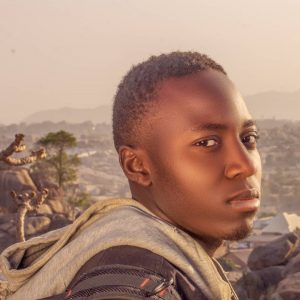 Younglan Talyoung: I am attracted to truth. And Poetry is Truth. It is the deepest way a human could ever possibly express his pain, his joy, his love, his hate and everything he could ever feel.
Younglan Talyoung: I am attracted to truth. And Poetry is Truth. It is the deepest way a human could ever possibly express his pain, his joy, his love, his hate and everything he could ever feel.
I read William Ernest Henley, G.K Chesterton’s ‘A Prayer in Darkness’, and Khalil Gibran’s ‘The Beauty of Death’ as often as I can because they remind me of who I am, keep me in check whenever I lose my path, and remind me that there is God and there is death. And that no matter what happens I must live and leave when my time comes
I’ll recommend the following poets for an aspiring poet:
Richard Ali, because one cannot help but fall more in love with Poetry after reading his “The Anguish and Vigilance of Things.” Short but deep poems live in his pen.
Ahmed Maiwada, because he teaches you how to hit the nail on the head with very apt, sweet and inspiring poems that are music to the ears. His collection of poems ‘Fossils’ is one of my best.
And, Daisy Ode because her poems push you into deep thought so that you would not have an option but to pick up your pen and start scribbling. Also, her expression is precise and flawless!
To poets drowning in rejection: Remember, Edgar Allan Poe died a wretched death but his works are considered classics today. So no matter what happens, keep writing, you’ll be remembered someday.
You might like Blue Mountain Arts Biannual Poetry Card Contest (Prizes: $650) / How To Apply
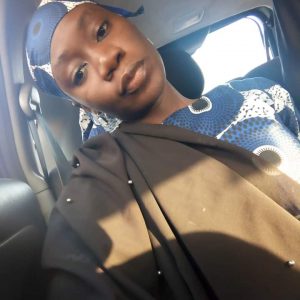 Hauwa Shaffi Nuhu: I’m drawn to the mundane shape of beauty, the intensely devastating forms it wears, its expected and unexpected nature, the bodily and most especially the momentary. That’s why poetry remains my top choice of artistic expression. I have found so much beauty in it.
Hauwa Shaffi Nuhu: I’m drawn to the mundane shape of beauty, the intensely devastating forms it wears, its expected and unexpected nature, the bodily and most especially the momentary. That’s why poetry remains my top choice of artistic expression. I have found so much beauty in it.
I find myself always, always returning to Franny Choi’s ‘An Introduction to Quantum Theory’. The poem is so beautiful, so successful in its translation of suffering and the re-imagination of alternate worlds. It overwhelms me. I go to it whenever I want to feel. To truly feel. I also return to Safia Elhillo, because she’s the love of my life. Kaveh Akbar, because he reinvents language in a way that doesn’t look like sorcery. And Danez Smith, because he writes in a way that is very relatable.
Rejections letters are part of the process. They are also not verdicts on the credibility of one’s writing. Someone –I think the editor of a journal – once made an analogy of the selection process being very akin to going into a mall to get clothes; you will find clothes beautiful but oversized for you, you will find a furry coat when what you’re looking for is not a furry one, you will find spectacular high-heeled shoes when you can’t buy anymore because you already have a lot of high-heels, you will have to pass on many, many clothes because they won’t fit the occasion for why you’ve come shopping, or because you simply can’t afford them.
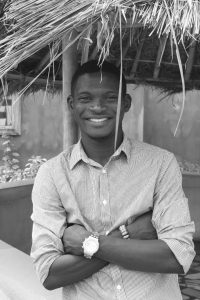 Adedayo Agarau: I was operated upon when I four. I passed out for days after that experience. I was told that my grandfather, who was also near death, lifted me from my sickbed and held me close for the first and last time. I like to imagine that he breathed poetry into me at that moment. When I began to write poetry in 2013, I was like a child playing with a lost language. Poetry helps me to visit the past in a short time, to retell a story, to bleed the entire universe into a small bowl of lines. That way, I will not litter the world with the remains of unused words discarded after my silence.
Adedayo Agarau: I was operated upon when I four. I passed out for days after that experience. I was told that my grandfather, who was also near death, lifted me from my sickbed and held me close for the first and last time. I like to imagine that he breathed poetry into me at that moment. When I began to write poetry in 2013, I was like a child playing with a lost language. Poetry helps me to visit the past in a short time, to retell a story, to bleed the entire universe into a small bowl of lines. That way, I will not litter the world with the remains of unused words discarded after my silence.
I return to Warshan Shire’s ‘Home’, Gbenga Adesina’s ‘How to Paint a Girl’, DM Aderibigbe’s ‘The Origin of Kindness,’ and George Abraham’s Al Youm, Kristin Chang’s ‘How I Became Fatherless’, Logan February’s ‘The Honest Lie’. Saddiq Dzukogi’s ‘My Penis’, Nome Patricks ‘Boy, Life will Break You’ and Wale Ayinla’s ‘The Hate Artist’
I would recommend George Abraham, Safia Elhillo for the dexterity of their language. Romeo Oriogun, for crazy, head-turning metaphors.
Rejection will only to make you soar if you do not let it get the best of you. The Editor-in-Chief of Adroit Journal, a journal that has rejected me 4 times (I think) tweeted that he finally got a poem accepted since 2017. That revelation humbled me.
You might also like Winter Tangerine Awards 2019 For Poetry And Prose Writers (Prizes: Up to $600)/ How To Apply
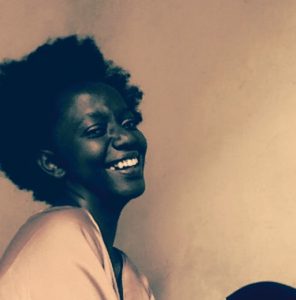 Katusiime Jeresi: I write about the things that unsettle my peace and keep sleep away at night. When I am insomniac, that’s a poem struggling to come out. So part of the reason I write poetry is so I can get some sleep, the other reason is that it’s the only way I can fluidly express myself without rambling. Also, I find the brevity and word economy beautiful.
Katusiime Jeresi: I write about the things that unsettle my peace and keep sleep away at night. When I am insomniac, that’s a poem struggling to come out. So part of the reason I write poetry is so I can get some sleep, the other reason is that it’s the only way I can fluidly express myself without rambling. Also, I find the brevity and word economy beautiful.
I return to Charles Owour’s ‘Your Cigarette Burnt The Savannah Grass’. I love it because for the life of me I failed to crack the metaphors Owour employed. It’s an unsolvable jigsaw and I love the imagery. I always read ‘A Mother’s Prayer’ written by me because of its prophetic nature. I love all the poems in Milk and Honey by Rupi Kaur and if I could see the world through Emily Dickinson’s eyes, I would be one of the greats. Oh and ‘If’ by Rudyard Kipling.
I recommend Emily Dickinson because she really saw life. Her poetry is writing done by a person who is so in tune with her surroundings. Nature is to be appreciated yet we seldom relish the air and wind in our hair. I also recommend Maya Angelou because she stood for the kind of feminism I want to be part of, and Suzan Kiguli because she writes beautifully and her imagery leaves your mind stained. Her poetry is her voice and in the kind of Uganda we live in, it’s one refreshing voice
For the poet currently drowning in rejection, try to swim. You never know how close you are to the shore, so don’t give up. Swim. Write another poem. Make your voice heard. Do not change your voice for anyone. Be daring. Swim.
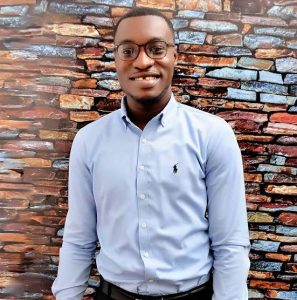 Oppong Clifford Benjamin: I use poetry to express my emotions for or against situations that affect me. I normally write prose when I am defending causes I support or talking against those I am against. So poetry to me is personal while I use the prose form to comment on issues affecting others. I love writing breakup poems, love poems and poems about LGBT and mental health because these are areas that matter to my heart.
Oppong Clifford Benjamin: I use poetry to express my emotions for or against situations that affect me. I normally write prose when I am defending causes I support or talking against those I am against. So poetry to me is personal while I use the prose form to comment on issues affecting others. I love writing breakup poems, love poems and poems about LGBT and mental health because these are areas that matter to my heart.
I would recommend Robert Carr, Kukogho Iruesiri Samson, and Oppong Clifford Benjamin. These guys don’t try to impress anybody in their poems. They just tell their stories in poetic lines. And being a believer of stories, I couldn’t stop falling in love with their works.
On rejection? Let me borrow the words of my good friend Caleb Somtochukwu Okereke: “And I’ll submit again. I am gunning for 200 rejections this year. I haven’t hit 50 even but I already have so many acceptances. Imagine what I’d achieve by 200 rejections. I’ll submit again. If I get tired, I will pause for a breather but I’ll submit again.”
The spirit of resilience behind these words is so instructive. Submit again and again until they solicit your works instead.
Contributors’ Bios:
Rasaq Malik is a graduate of the University of Ibadan. His chapbook, No Home in This Land, selected for Chapbook Box edited by Kwame Dawes and Chris Abani has been published. His work has appeared or is forthcoming in Rattle, New Orleans Review, Spillway, and elsewhere. He won Honorable Mention in 2015 Best of the Net for his poem Elegy, published in One. He was shortlisted for Brunel in 2017 and Sillerman Prize in 2018. He tweets @Rasaq50685749
Brittney Jeffries is a poet and an educator. She is currently working on a poetry project but also feels inspired to write children’s stories. Her poetry speaks to self- love, social justice and journeying through the difficulties of life. Brittney is originally from North Carolina but has spent the last three years in Philadelphia where she discovered her passion for writing poetry. She tweets @brittj_writes.
Logan February is a Nigerian poet and a book reviewer at Platypus Press’ Weekend Review. His work has appeared in The Adroit Journal, Vinyl, BRITTLE PAPER, Kabaka Magazine, The Raleigh Review, and more. He has been nominated for Best of the Net Awards, and his first full-length manuscript, Mannequin in the Nude, was a finalist for the Sillerman First Book Prize for African Poets. He is the author of How to Cook a Ghost (Glass Poetry Press, 2017), Painted Blue with Saltwater (Indolent Books, 2018) & Mannequin in the Nude (PANK Books, 2019). You can find him at loganfebruary.com
Nondwe Mpuma was born in Lubaleko, Mount Ayliff and is enrolled for an MA in Creative Writing at the University of the Western Cape. Her poetry has been included in the anthology, Cutting Carrots the Wrong Way, WritingThreeSixty Journal as well as the Underground Art Literary Journal. She is interested in the experiences of time and memory in art.
Emitomo Tobi Nimisire’s comma life was messed up by Strunk & White and Mary Norris. She writes from Ibadan, Nigeria. She blogs at www.nimisire.wordpress.com and Tweets @Nimisire.
Younglan Talyoung is a Spoken Word Artist, Performance Poet, Creative Writer and Entrepreneur from Jos. He was a finalist, Jos Poetry Slam 2017; 1st Runner Up, Jos Poetry Slam 2018, Winner (Spoken Word Category) Winners got Talent 2018, JOGAMA Green Awards: New Spoken Word Artist 2018 and 2nd Runner Up JustCr8te E-Slam 2019. He was present at Lagos International Poetry Festival 2018 and has performed in a wide array of stages nationwide. His poem “Rooftops” was published on Okada Books. Currently, he is a student of EB Arts Organization where he writes with Lardo, Rudolph, Abdulqudus, Vera, Ola, Miidong and Leonell Echa. He tweets @Czar_younglan.
Hauwa Shaffii Nuhu is a Nigerian poet and essayist whose work has appeared on Popula, Aké Review, After The Pause journal, Brittle Paper, and elsewhere. She is a 2018 fellow of Ebedi Writers Residency. She writes from Nigeria where she is currently rounding up a law degree. She tweets @waasiShafii.
Adedayo Agarau is a documentary photographer and poet from Nigeria. He is an Executive Assistant at Animal Heart Press and a Contributing Editor at Barren Magazine and writes on loss, boy child abuse, and absence. His works have been featured on Gaze, Mojave Heart, Glass-Poetry, Honey & Lime, and elsewhere. His Chapbook, Asylum Chapel, is forthcoming by Pen And Anvil Press, 2019. He tweets @adedayo_agarau.
Katusiime Jeresi is a Ugandan poet. She Blogs, writes film scripts, Midterm essays and does research but poetry remains her refuge. Her work has had audience in taxicab mag and JbwStudio. She mothers and work during the day while at night she writes out her soul. She tweets @jeresi_ish.
Oppong Clifford Benjamin is a civil engineer by profession and award-winning poet. His poems have appeared in KWEE magazine in Liberia, the Portor Portor (an anthology which featured six contemporary poets and six established poets across the world), Brittle paper, WRR, BlogNostics, and Vagabond city Lit, USA, Ghana Writes Literary Journal, the UK poetry library. In 2013, WRR poetry in Nigeria honoured Clifford as the Ghana Poet of the year. Clifford has read his poems in Ghana, Nigeria, South Africa, Germany, Norway, and Russia. He has authored a collection of short stories titled ‘TheVirginMther other short stories, published by Forte Publishing house in Monrovia, Liberia. Clifford is now manages affairs at Ghana Writes Literary Group in Ghana. He tweets @glencliffben.
Thanks to Tega for composing and editing this post. Tega Oghenechovwen has published work in Litro UK, Black Sun Lit, The Kalahari Review, Afreada, African Writer, and other venues. He tweets @tega_chovwen.
Interested in writing for Creative Writing News? See our Write for Us page. We look forward to hearing from you.
Click to read Six Award-Winning Writers Share Writing Tips, Personal Writing Philosophies and Stories About Rejection Letters


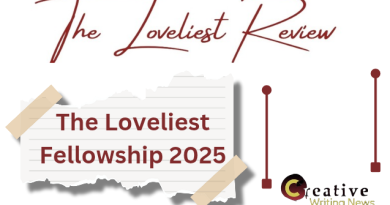
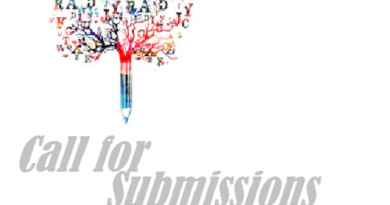
Pingback: Kreative Diadem Isolation Issue/ How to Submit - Creative Writing News
Pingback: How To Analyze A Poem (Examples, Worksheet Questions and Tips)
Pingback: 10 Statement Of Purpose Examples: How To Wow The Admission Committees Of Fully-Funded MFA Programs (Guide + Samples +Tips) - Creative Writing News